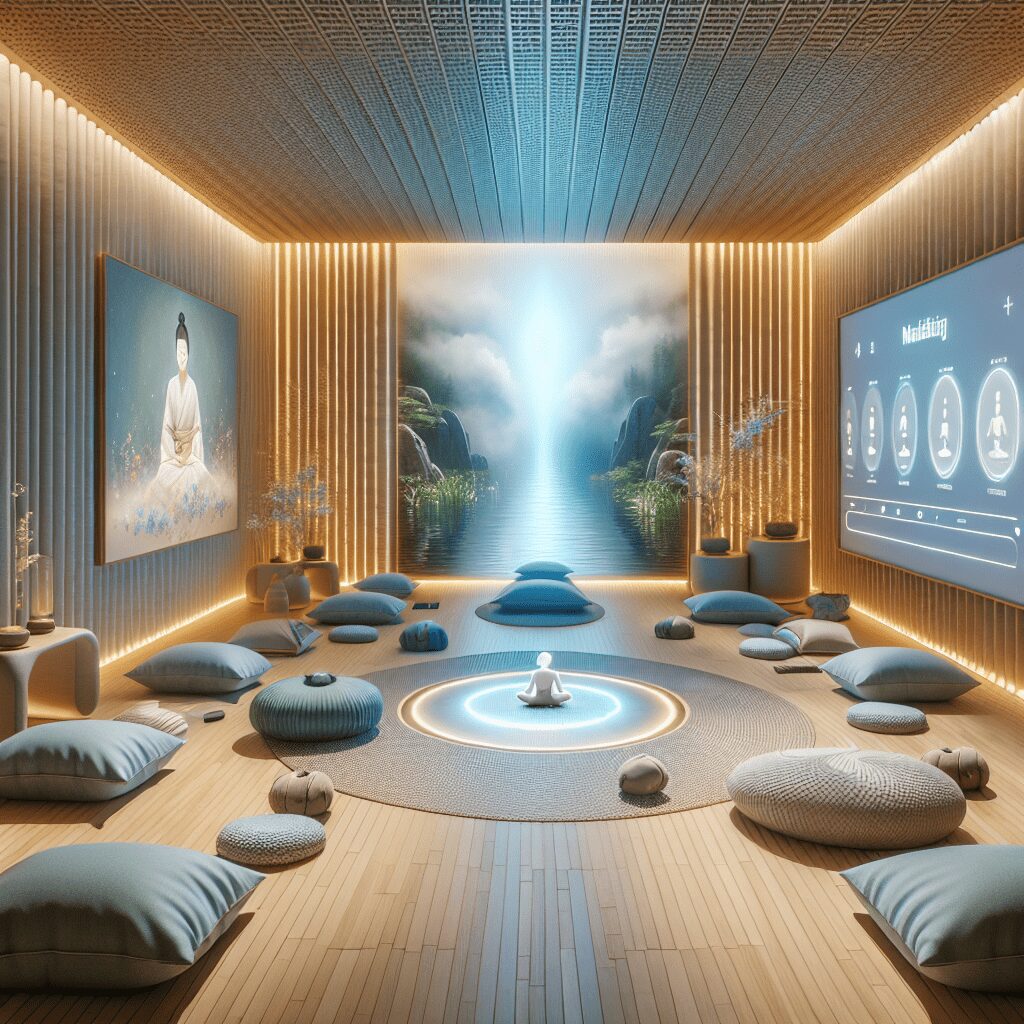
Prioritize your mental well-being daily. Enhance your life by nurturing your mental health with the Smart Meditation app. Break free from stress, alleviate anxiety, and enhance your sleep quality starting today.
Sleep Apnea Meditation
Unlocking Restful Nights: The Power of Meditation in Combating Sleep Apnea
In a world where the hustle and bustle of daily life can take a toll on our well-being, finding peace and tranquility for a good night’s sleep can sometimes feel like an elusive quest. For those wrestling with the nocturnal disruptions of sleep apnea, this quest can seem even more daunting. But what if the ancient practice of meditation could offer a beacon of hope? Let’s dive into the transformative potential of meditation for those grappling with sleep apnea, and how embracing this timeless practice could pave the way to more restful nights and rejuvenated mornings.
The Science Behind Sleep Apnea and Meditation
Sleep apnea, characterized by pauses in breathing or periods of shallow breathing during sleep, can significantly impact one’s quality of life, leading to daytime fatigue, irritability, and a host of other health issues. While CPAP machines and lifestyle changes are commonly prescribed remedies, meditation has emerged as a powerful tool in the arsenal against sleep apnea, offering a drug-free way to enhance one’s quality of sleep.
Breathe Easy, Sleep Better
At its core, meditation involves techniques aimed at focusing the mind and promoting a state of calmness and clarity. For individuals with sleep apnea, the benefits are twofold:
-
Stress Reduction: Chronic stress can exacerbate sleep apnea symptoms. Meditation activates the body’s relaxation response, helping to lower stress levels, which in turn can reduce the occurrence of sleep apnea episodes.
-
Improved Breathing Patterns: Certain forms of meditation, particularly mindfulness and guided breathing exercises, encourage deeper, more controlled breathing. This can strengthen the respiratory system, making it less likely for the airway to collapse during sleep—a common problem in obstructive sleep apnea.
Embracing Meditation: A Beginner’s Roadmap
Embarking on a meditation journey doesn’t require hours of your day; even a few minutes can make a difference. For starters, consider incorporating these simple practices into your nightly routine:
-
Mindfulness Meditation: Before bedtime, spend 5-10 minutes in a quiet space, focusing solely on your breath. Acknowledge any thoughts that come to mind, but gently bring your focus back to your breathing.
-
Guided Imagery: Utilize meditation apps available for both Android and iOS platforms, many of which offer guided imagery sessions. These are designed to transport you to a state of deep relaxation through vivid storytelling and soothing backgrounds.
-
Progressive Muscle Relaxation (PMR): Beginning with your toes and moving upward, tense each muscle group for a few moments, then release. This practice not only aids in relaxation but also prepares the body for a restful sleep.
By integrating meditation into your pre-sleep ritual, you’re not just combating the symptoms of sleep apnea; you’re also setting the stage for a more serene bedtime experience overall.
A Final Whisper Before Slumber
In an era where digital distractions and the pressures of modern life can wreak havoc on our sleep patterns, turning to meditation can seem like a throwback to simpler times. Yet, this ancient practice holds the key to not just better sleep, but a more balanced, stress-free lifestyle.
For those tiptoeing into the world of meditation to alleviate sleep apnea, remember: patience and consistency are your allies. With each breath and every moment of mindfulness, you’re one step closer to reclaiming the night and awakening to a brighter, more energized self.
So, why not give it a whirl? Your journey to serene slumbers and tranquil nights may just be a meditation session away.





